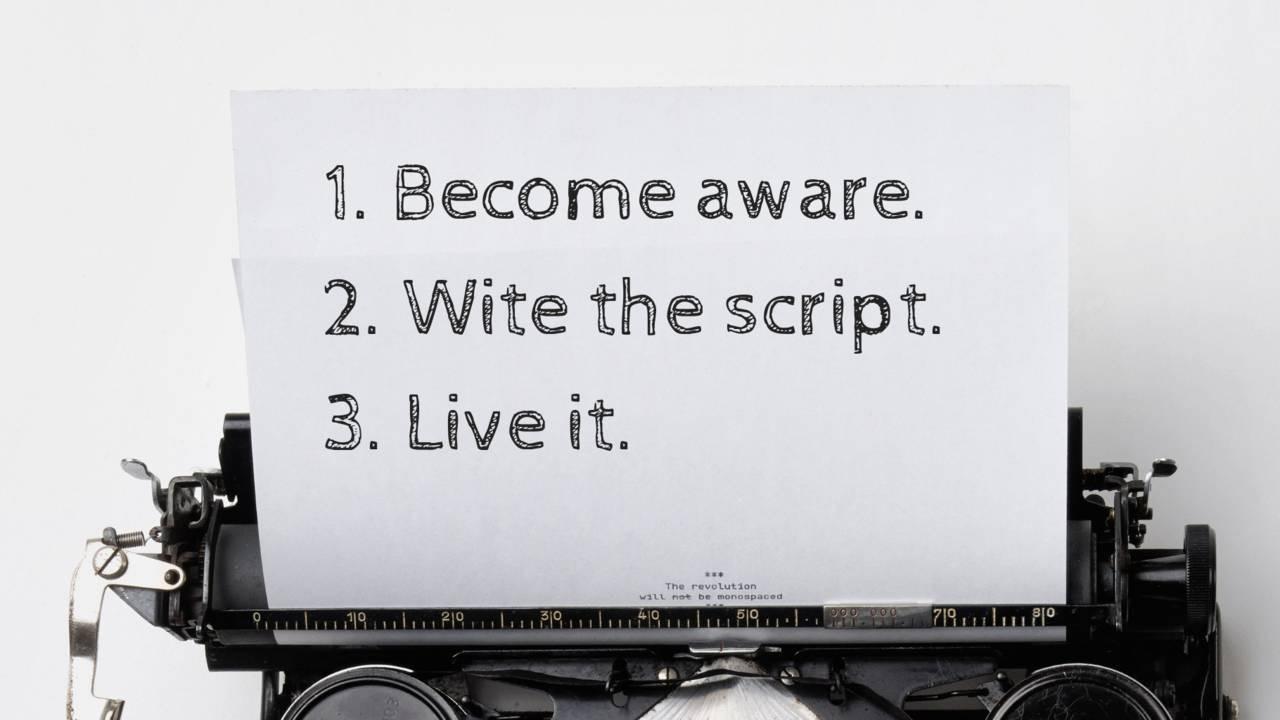Your Weight Loss Story-In 3 Steps

We think that the stories that we tell ourselves and others are true. What we want to recognize is that the stories we are telling are normally not just based off of pure fact, but come out of our personal history, needs, preferences and beliefs.
We want to pay attention to this because the stories that we tell around our health or weight loss will have a tremendous impact on our actions, and, thus, our results. We know this is true because our thoughts create our emotions, and our emotions fuel our actions. Since stories are really just streams of thoughts, we want to be careful about the thoughts that we are holding in our minds and the stories that we are telling around our weight loss. Now, this is not an easy thing to do. But, the first step, is to become aware of the story that we are telling. This is especially true if we have been trying to lose weight for a long time or find ourselves continually circling around any challenge.
For example, let's say your story is that you don't have enough time to exercise and that is why you cannot lose weight. The facts may be that you literally do not have time to go to the gym. But, if you are willing to tell your weight loss story differently, you can begin to imagine how you could lose weight given your time restrictions.
This takes us into the second step, which is to create a new story. Constructing a new story is simple. But, that does not mean it is easy. Sometimes it is difficult to see beyond our own stories when we are the main character. A trick to use is to pretend like you have already reached your goal and then tell the story of how you accomplished it. That story may sound like, "I didn't have time to exercise so I really focused on my diet and limited my sugar intake to start. I slowly progressed at a comfortable pace and eventually cut out all sugars and flour." Or, " I didn't have time to exercise, so I just started to stand up while I was on the phone and took laps around the office while waiting for the coffee to brew. That turned into taking the stairs, parking a little further away and then I purchased a stand up desk." Notice the difference in your energy level when you tell one story versus another. You want to create a story that generates energy and a bit of excitement for you personally.
The final step is to live the story. Take this beyond a mental construct and create one "to do" item. How you would you carry out this story? In the first example, to reduce sugars, perhaps you cut out the sweetener in your coffee, or candy at your desk or desserts. The key is to choose a behavior that can be measured so you can keep yourself accountable. The really exciting part of the story, as you know, comes at the point of tension. It is where the character is challenged. It may not be as dramatic as when Luke learns that Darth Vader is his father, but from personal and professional experience, this part can feel pretty intense. Maybe for you, it will be when you come across that bowl of M&Ms on that skinny person's desk or would rather check Linked In than walk around the office. This part is guaranteed to happen (or it wouldn't be a good story, now would it?) But now, you know better. You wrote the script, you are the main character and it's time to act.
It is right there, in those moments, where you have the opportunity to stop reliving the story that doesn't serve you. You consciously choose to live a different story. You feel the excitement and play the part as it was written. You literally change the denouement.
So, what is your current story? And, what is your real story? What is the story that your ideal self lives? It's not enough to gently imagine that story, you need to script it. Be specific. Take guidance from the ultimate story tellers who took dire circumstances and created the most amazing and uplifting stories. Remember Christopher Reeves, Steve Gleason, Stephen Hawking, Oprah Winfrey, Steve Jobs and Luke Skywalker. Look around at ordinary people who have taken extraordinary events and created stories that serve beyond all expectations. Watch how they crafted their own stories and demonstrated the incredible human capacity for resilience, courage and strength.
Our brain and it's ability to imagine is an incredible tool that we can use daily to create all of our stories. And, eventually, those stories will become the story-the story of your life.
So... what is your story?